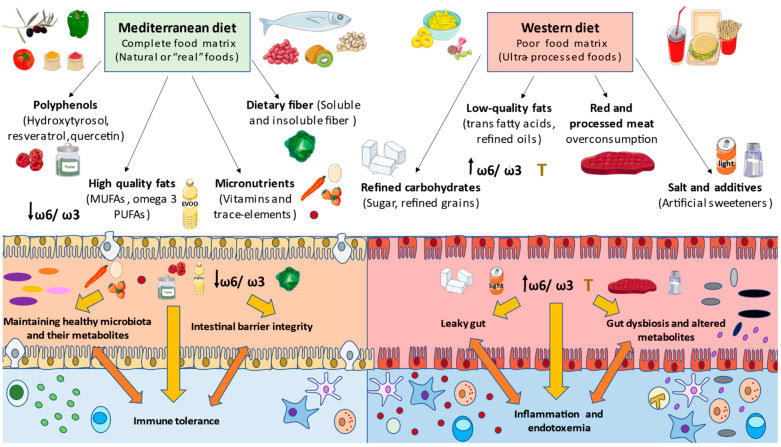Exploring Inflammation

It’s easy to think about some disorders that are associated with inflammation such as arthritis, phlebitis, bronchitis, and wound healing; but what about diabetes, hypertension, and even some cancers? They are also affected by inflammation.

Inflammation comes from an injury or infection in the body. When injured, the immune system sends white blood cells to try to help repair damage. This accumulation of white blood cells in a localized area results in fluid accumulation and inflammation.
Acute inflammation vs chronic inflammation
Acute inflammation is what occurs when there is a brief injury or short-lived infection like a broken bone, poison ivy rash, or even the common cold. There is an offending external injury with a strong internal response. Acute inflammation often shows up as redness, swelling, pain, or itching. This is a product of the body focusing oxygen and white blood cells to the area in an attempt to heal the injury.
Chronic inflammation is sustained injury over weeks to months or more. Chronic inflammation is also caused by an injury to the body, but this can come from a poorly healed old injury, a sedentary lifestyle or a poor diet.2 There may still be swelling, pain or redness but there may also be fatigue, depression, anxiety and chronic disease. The responses that can help us heal faster from a broken arm are the same processes that can cause illness over time.
Inflammation and health
We should start thinking of health disorders in terms of inflammation. Because we know what inflammation is, we can take steps to minimize its effects on our long-term health. Following an anti-inflammatory diet (like the Mediterranean diet) can help counteract the detrimental effects of a sedentary lifestyle.2 Exercise can decrease long-term inflammation and help control blood sugar and cardiovascular disease.3,4
Inflammation can also be caused and exacerbated by lack of adequate sleep.5 Sleep deprivation can cause our bodies to be more chronically inflamed and at greater risk for disease. Modifying the diet to a Mediterranean style diet can help our body get better quality and quantity of sleep.6 Some of the phytochemicals that are found in abundance in the Mediterranean diet can have sedative effects on the body.6 Others may help us increase the amount of melatonin we make within our body, helping us sleep better.6
Anti-Inflammation Action Items
- Increase anti-inflammatory foods in the diet
- Prioritize sleep
- Increase the amount of movement in your day

-Oily fish (like salmon, sardines, and mackerel)
-Nuts and seeds
-Fruits and veggies
-Whole grains
-Olive oil
Citations
- García-Montero, C., Fraile-Martínez, O., Gómez-Lahoz, A. M., Pekarek, L., Castellanos, A. J., Noguerales-Fraguas, F., … & Ortega, M. A. (2021). Nutritional components in Western diet versus Mediterranean diet at the gut microbiota–immune system interplay. Implications for health and disease. Nutrients, 13(2), 699.
- Arouca, A.B., Santaliestra-Pasías, A.M., Moreno, L.A., et al (2019). Diet as a moderator in the association of sedentary behaviors with inflammatory biomarkers among adolescents in the HELENA study. European Journal of Nutrition, 58(5), 2051–2065.
- Åkerström, T., Stolpe, M.N., Widmer, R., et al (2022). Endurance Training Improves GLP-1 Sensitivity and Glucose Tolerance in Overweight Women. Journal of the Endocrine Society, 6(9), bvac111.
- Yin, A., Yuan, R., Xiao, Q., et al (2022). Exercise-derived peptide protects against pathological cardiac remodeling. EBioMedicine, 82, 104164.
- Irwin, M. R. (2019). Sleep and inflammation: partners in sickness and in health. Nature Reviews Immunology, 19(11), 702-715.
- Scoditti, E., Tumolo, M.R., Garbarino, S. (2022). Mediterranean Diet on Sleep: A Health Alliance. Nutrients, 14(14), 2998.
- Categories: